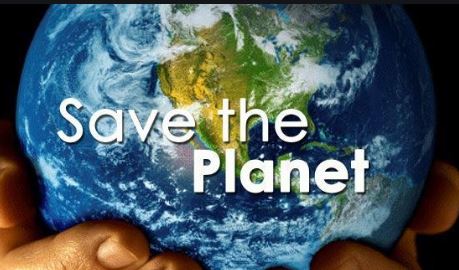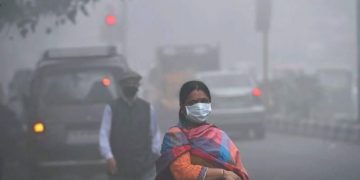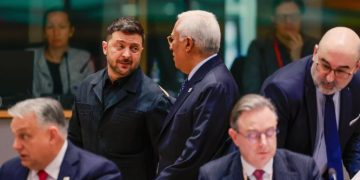Bertrand Badré
The COVID-19 pandemic is one of the gravest global challenges in generations. Governments and monetary authorities are using every policy lever at their disposal to prevent a grave public-health emergency from becoming an even deeper economic, political, and social crisis. But as we rush to mobilize, we also must start thinking about how we can shape the post-pandemic world for the better.
During the last global crisis 11 years ago, the international community succeeded in preventing a complete financial collapse, but fell short of bringing about a strong recovery, let alone laying the foundation for a more sustainable economy. China, for example, quickly implemented one of the most expansive stimulus packages in history. But while this response was effective in preventing a deep recession, it was followed by rapid increases in China’s annual greenhouse-gas emissions.
Now that the world is committing to doing “whatever it takes” to avert a deeper catastrophe from Covid-19, we must recognise the fact that the same imperative applies to the longer-running global sustainability crisis. And yet, it already looks like, the first wave of stimulus policies will once again center around high-carbon sectors, as evidenced by the pushback against the European Green Deal and the bailouts being extended to the fossil-fuel industry.
Despite the 2015 Paris climate accord and the Addis Ababa Action Agenda for financing sustainable development, the world still is not on track to meet its targets for greenhouse-gas (GHG) emissions or investment in low-carbon technologies. We are still beholden to Milton Friedman’s mantra that “the social responsibility of business is to increase its profits.” But the second global crisis in a little more than a decade confronts us with a choice: What course will we chart for the twenty-first-century economy?
The COVID-19 emergency represents an opportunity to accelerate the transition to a more sustainable society at a pace that would have been unthinkable just a month ago. Now that the fiscal dams are breaking loose, public investment must be directed where it is most needed, not just now, but also in the long term. This need not involve a trade-off. As soon as people can return to work, governments can support job-intensive construction-sector programmes to retrofit residential and commercial buildings for energy efficiency. They can invest in renewable energy and sustainable infrastructure, while also funding new research and development, reforestation, coral-reef restoration, regenerative agriculture, sustainable fisheries, and so forth.
Moreover, there is now an opportunity – and an urgent need – to pursue deeper global cooperation on all of these fronts. The pandemic threatens to devastate developing and emerging economies, which can bring to bear far less monetary and fiscal firepower. The resources of the International Monetary Fund and multilateral development banks (MDBs) must be mobilized, expanded, and deployed more creatively to help the world’s most vulnerable regions.
With public budgets already strained, private investment also must be mobilized. A significant portion of this should be directed towards sustainable infrastructure in the developing world. The developing world now accounts for most global GHG emissions. MDBs, in particular, should step up their efforts by assuming far more risk, offering stronger guarantees, and ratcheting up climate and biodiversity investment targets.
Fortunately, as we pursue a more sustainable post-pandemic future, we will not be starting from scratch. Building on the current international agreements for reducing emissions and increasing finance for sustainable development, many countries have been working toward new global targets for preserving biodiversity, in anticipation of the forthcoming (though now postponed) Convention on Biological Diversity (COP15) in China.
Now is the time to think big. In 1944, while World War II was still raging, representatives from governments around the world gathered in Bretton Woods, New Hampshire to start planning for what would follow it. Following that model, we should be preparing a new Bretton Woods for sustainability.
There is much work to be done. We need new global standards, closer alignment targets for achieving net-zero-emissions, and modified financial standards to account for environmental factors (“mark-to-planet” accounting). We also need to create new networks of public and private coalitions to improve upon existing multilateral frameworks. A Green Bretton Woods would provide a platform for countries to negotiate new rules for sustainable finance and commerce. It could produce new science-based targets and metrics for the private sector and governments, more financing for global public goods (crucially, biodiverse ecosystems), deeper international alignment among national-level subsidy and tax regimes, and longer time horizons for investments. The financial sector is the economy’s main mechanism for allocating resources and the distribution of risk. Given current constraints on government budgets, the financial sector has a critical role to play in redirecting private capital flows toward the investments needed for a more sustainable economy.
The COVID-19 crisis comes at a crucial moment: the beginning of the last decade that we have to act on climate change. Climate scientists have warned that a failure to take the necessary steps now will result in catastrophic global warming and mass extinctions. There will be no better moment to address the root causes of global imbalances, to face up to the looming social and environmental crisis, and to reaffirm and then strengthen the international commitments that we made just five years ago.
Governments are about to spend trillions of dollars to soften the blow from Covid-19. We must not let that money go to waste. When one is being buffeted by a storm of this magnitude, the worst thing one can do is lose one’s compass. But we must use that compass to chart a new course toward an economic model that placed human and environmental sustainability at its center.
©project syndicate. The writer is a former MD of World Bank, and currently the CEO of ‘Blue Like An Orange Sustainable Capital’. He is also the author of ‘Can Finance Save the World?’






































